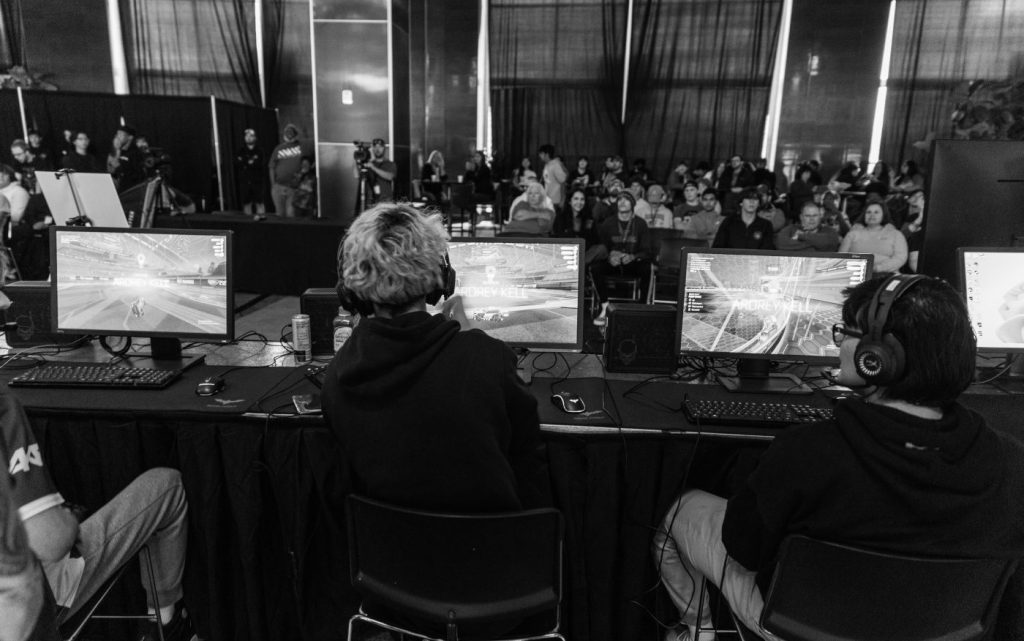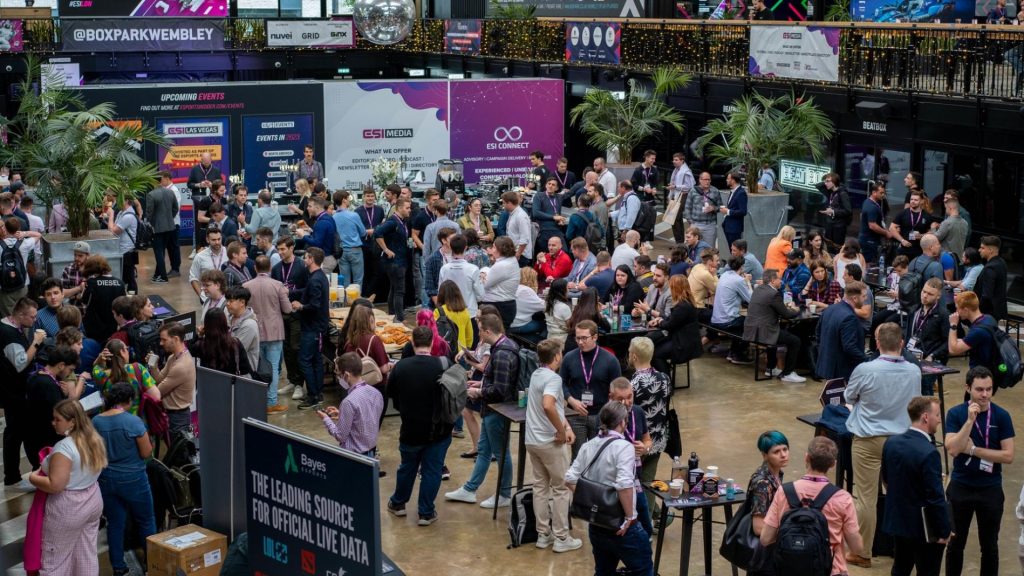
The esports industry contains a vast variety of roles, ranging from the obvious (becoming a professional player) through to journalism, marketing and the many various operational roles required to run large-scale LAN events.
Despite esports showing massive growth potential, the industry is currently undergoing a turbulent period of consolidation, making it more difficult to be involved in the scene from the perspective of securing full-time employment. Still, there are several ways to get involved in the sector, across different levels and forms of employment.
Due to the significant differences in professions — marketing, PR, event organisation, production, and more — each role has its own routes. Opportunities, like dedicated esports qualifications, are being developed as the sector professionalises. However, traditional options like utilising transferable skills, gaining valuable experience, or developing your portfolio are still the most important paths to embark on.
For those who are thinking about a career in esports, but are not sure where to start, this article aims to provide some useful tips on where to begin and how to build a potentially fruitful career.
Work experience and volunteering
While payment for this option is rare, volunteering can be an excellent way to embark on a career in esports. Volunteering at in-person events, creating content to fine-tune skills, and using these opportunities to learn about a particular role, remain solid stepping stones towards employment.
It is also worth looking into paid internships. UK-based esports organisation Fnatic, among other organisations, often provide opportunities to build skill sets across various avenues.
Alongside volunteering and internships, work experience placements are also viable. Placements enable participants to gain experience in numerous areas of esports, ranging from tournament operations to broadcast production. The main focus is developing skills that will enhance the chances of climbing further up the career ladder. Esports work experience doesn’t just enhance skillsets for work in the industry. The skills learned can also be applied into other industries.
Author’s perspective: Before securing a role as a news writer at Esports Insider, I volunteered for several years at esports organisations Team Infused and Epsilon Esports to gain experience, build relationships with others within the industry, and grow my skill set before seeking full-time employment.

Finding your niche
With so many different areas for potential employment, finding a niche is incredibly effective when looking to embark on a career in the esports industry. For example, if you’re an aspiring writer, finding a topic or a title that doesn’t receive coverage provides an excellent opportunity to develop an area of expertise. As a result, you’re more likely to gain greater access and fine-tune skills.
For example, prior to joining esports bookmaker Rivalry as its Senior Manager of Corporate Communications, Cody Luongo specialised in coverage of the esports gambling sector for Esports Insider.
Targeting less in-demand ecosystems could also allow individuals to practise and refine skills such as researching, event management, social media, team managing, video editing and much more — all of which could be used across the sector or be transferable to other industries.
Esports contains a wide variety of roles where developing and refining a niche can set you apart from other candidates when applying for a job. For example, the world of esports broadcasting continues to evolve at an impressive rate. As esports broadcast technology develops, having extensive knowledge in a new, niche area could open greater employment opportunities within your chosen title/region, whilst also bolstering your portfolio.
Developing greater knowledge of broadcasting equipment and techniques could also be transferable to other sectors such as sports production.

Gaining qualifications
Whether it’s esports-specific qualifications or learning an area where skills can be transferred, looking at obtaining qualifications for potential employment is a useful area to explore.
The discourse surrounding the value of esports qualifications often creates plenty of debate between industry stakeholders, but they can lead to potential employment thanks to work placements included within some courses. It is, however, imperative that if an esports qualification is a route you’re considering, proper research should be done to find out what the course contains and its suitability for your own intended path. It’s also important that the course offers transferable skills outside of the esports sector in case employment in the industry doesn’t work out.
Alongside general esports degrees, there are specific qualifications that focus on one aspect of the industry, such as Confetti’s Esports Production degree. These are great for individuals who already have an idea of what part of the esports sector they want to enter. Additionally, there are also college qualifications. In collaboration with British Esports, Pearson provides a BTEC in esports at a number of colleges across the UK, teaching students about the potential career avenues within the esports industry. Teaching different areas of the industry also provides students with opportunities to dip their toes into several sectors to find where their passion lies.
With more educational establishments offering esports courses, Salford Business School’s Ian Earle believes a Higher National Diploma (HND) is one way of securing a potential career. “An HND is a qualification that combines academic study with practical, hands-on elements to ensure students have a well-rounded knowledge of a subject that allows them to place in industry post-study.”
Alternatively, degrees in marketing, broadcasting, and other areas where skills can transfer over to esports are perfectly viable options if an esports degree isn’t a direction to take. Ultimately, qualifications are useful when it comes to looking for jobs that require some degree of experience and knowledge in a specific area. However, the degree itself won’t land an individual a job, it should be accompanied with gaining experiences and valuable contacts.
Ultimately, it is possible to embark on a career within the industry without dedicated qualifications. Some choose to study another area before applying skills to an esports role while others fall back on experience and choose not to go down the route of a degree.

Networking
The esports industry contains a wealth of people possessing a variety of expertise in numerous areas, many of whom are happy to share advice. Networking at in-person industry events such as ESI London and ESI Next Gen, and/or across social media platforms like LinkedIn, is an excellent way to build a bank of contacts. This allows you to enquire about different employment opportunities available in the esports industry.
In some cases, contacts built up through networking can make all the difference when it comes to embarking on a career in esports, as in any other sector. They can point you in the direction of open positions or other areas that can further improve your career prospects.
Having a strong network, and being able to reach out to industry professionals for advice, could prove to be invaluable, particularly when wanting to understand more about the current esports climate from a business perspective.
To conclude, there are a multitude of ways for people to embark on a career in esports. Ranging from dedicated qualifications to building a reputation through coverage of a specific niche, those looking for jobs within the industry have several pathways that could lead to employment.



